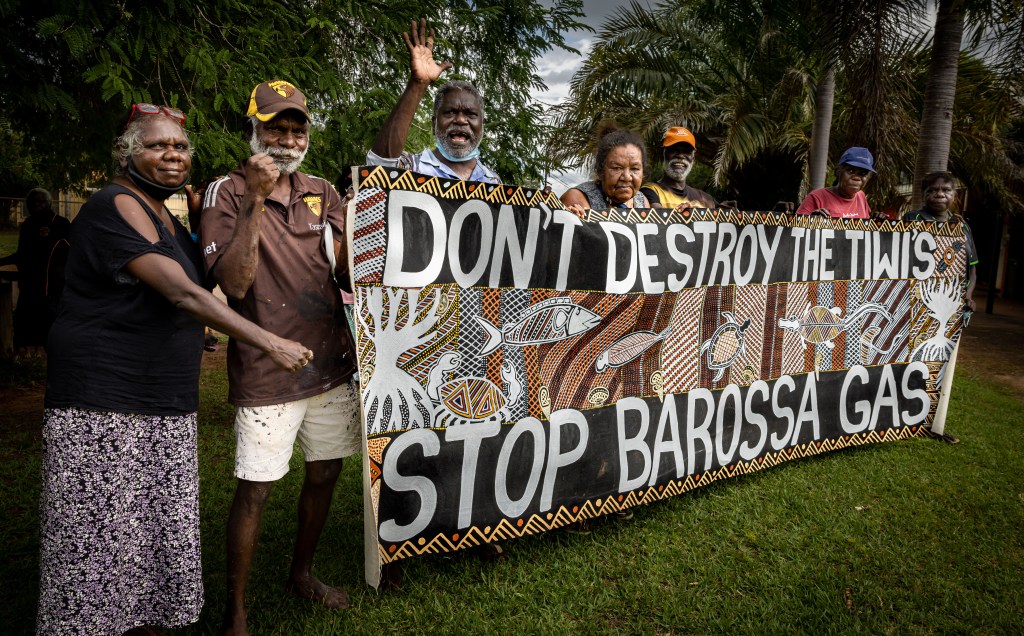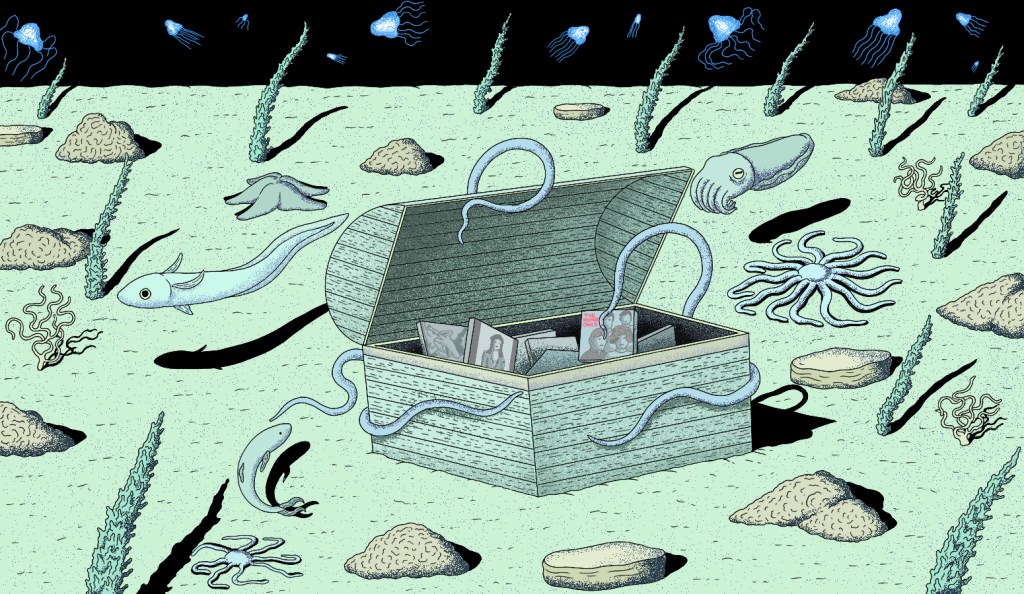A massive gas company that had already started drilling on the sacred land of Tiwi Islands Traditional Owners has two weeks to vacate after Traditional Owner and Senior Munupi Lawman Dennis Tipaklippa sued the Australian government for approving the project—and won.
The verdict was handed down by Australian Federal Court Justice Mordecai Bromberg on Wednesday and found that local Indigenous people of the Tiwi Islands weren’t properly consulted on the controversial gas project, which has been in the works since 2004 and begun drilling earlier this year.
Videos by VICE
“I am the happiest man alive,” Tipaklippa said on Wednesday.
“We want Santos and all mining companies to remember—we are powerful, we will fight for our land and Sea Country, for our future generations no matter how hard and how long,” he said.
“We will fight from the beginning to the end. Santos tried to get away with not consulting us, but today we have had our voices heard. We cannot be sidelined or silenced.”
The project will lose approval from October 6, and is subject to an immediate halt on drilling.
“This is a huge victory for the Munupi Clan, and a testament to their strength and dedication in the face of one of the biggest mining companies in the country,” said Alina Leikin, special counsel at the Environmental Defenders Office, who represented Tipaklippa and the Munupi clan in the suit.
“It will have national and global implications for consultation with First Nations peoples on mining projects.”
Tipaklippa and the Munnupi clan moved to sue Australia’s oil and gas project regulator, the National Offshore Petroleum Safety and Environmental Management Authority, in June with claims that Santos failed to properly consult with Traditional Owners before opening up the controversial $4.7 million Barossa gas project for drilling earlier this year.
When the docket was called in late August, Justice Bromberg travelled to the Tiwi Islands, where a Federal Court case was heard on a beach for the first time in Australian history.
As part of the project, Santos—Australia’s second-largest independent gas producer—had plans to build a 300 kilometre-long (185 mile) gas pipeline connecting the Barossa gas field to the Darwin liquified natural gas plant, some 500 kilometres (about 310 miles) away, through the Timor sea north of Darwin.
The pipeline, which would be built without First Nations approval, would, the court heard, disrupt pristine sea turtles and the habitats of other marine life.
Tiwi Islands mayor and senior Munupi traditional owner, Pirrawayingi, told the court in August that Santos was not thinking about the significance of the sea to Aboriginal people, nor the ever-lasting physical and spiritual damage a major gas spill could do to the entire region.
“When we talk about Sea Country, we as Munupi Traditional Owners do have ownership of it,” Pirrawayingi said.
“That may be difficult for outsiders to comprehend. We are the holders of everything under and in the sea. It is part of us, who we are as traditional Aboriginal people. We need people to understand that.”
The controversial Barossa Project has been in the works since 2004, but Tiwi Islanders claim to have only been alerted to the project earlier this year, just months before drilling was slated to begin in July.
Paulina Jedda Puruntatameri, a Munupi traditional owner who gave evidence last month, told the court that elders had serious concerns that drilling into the Timor Sea would do irreparable damage to sacred sites deep at sea.
“The Songlines go out to deep water, that’s where the turtles are. The deep sea country is part of the Munupi clan. We are connected to the sea. We have a turtle dance and we are connected to those turtles… [there] are sacred sites that are not to be disturbed,” Puruntatameri said.
“They are in the water, there off Melville and Bathurst island as well. They are there in the water.”
Follow John on Twitter.
Read more from VICE Australia and subscribe to our weekly newsletter, This Week Online.





